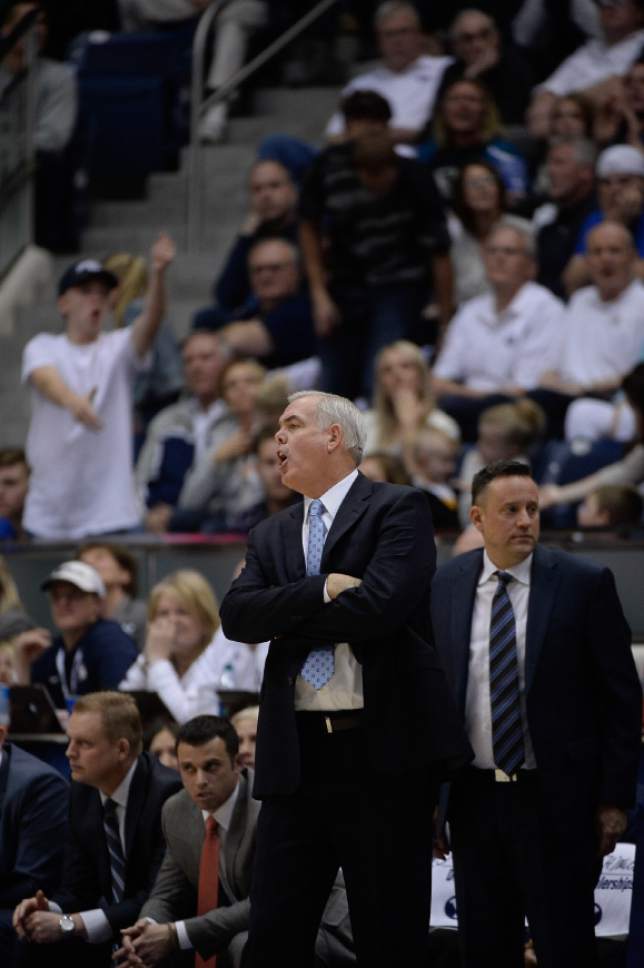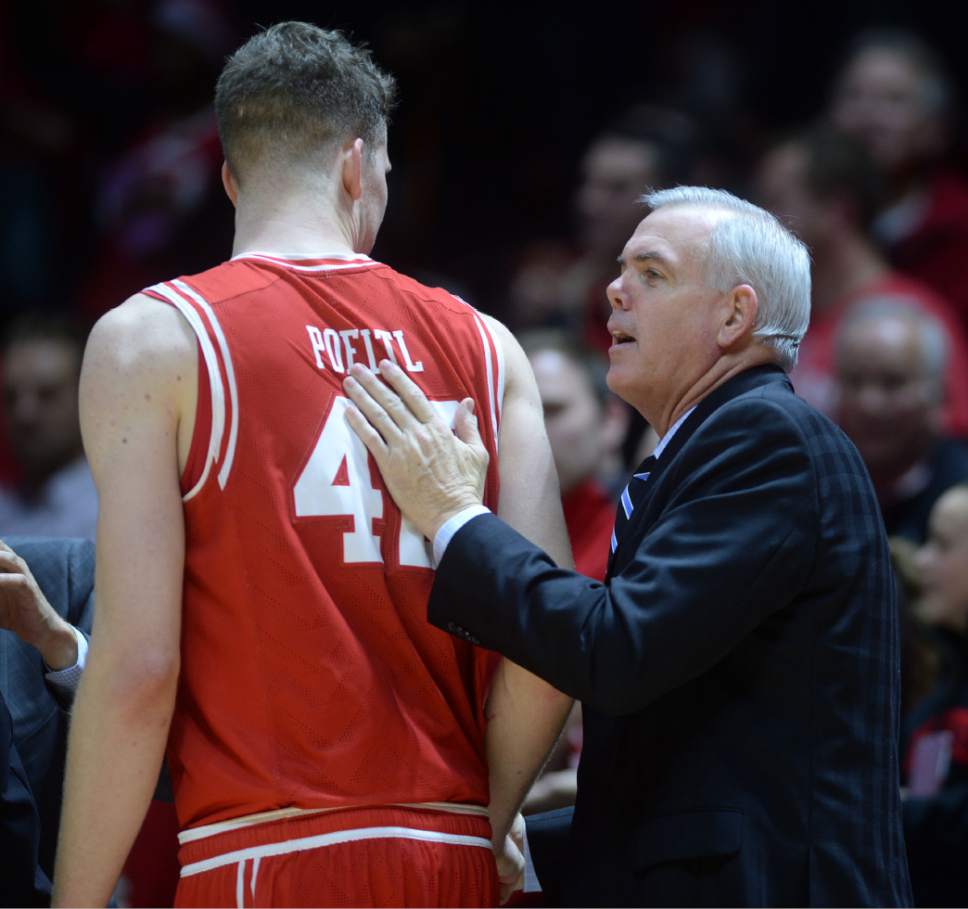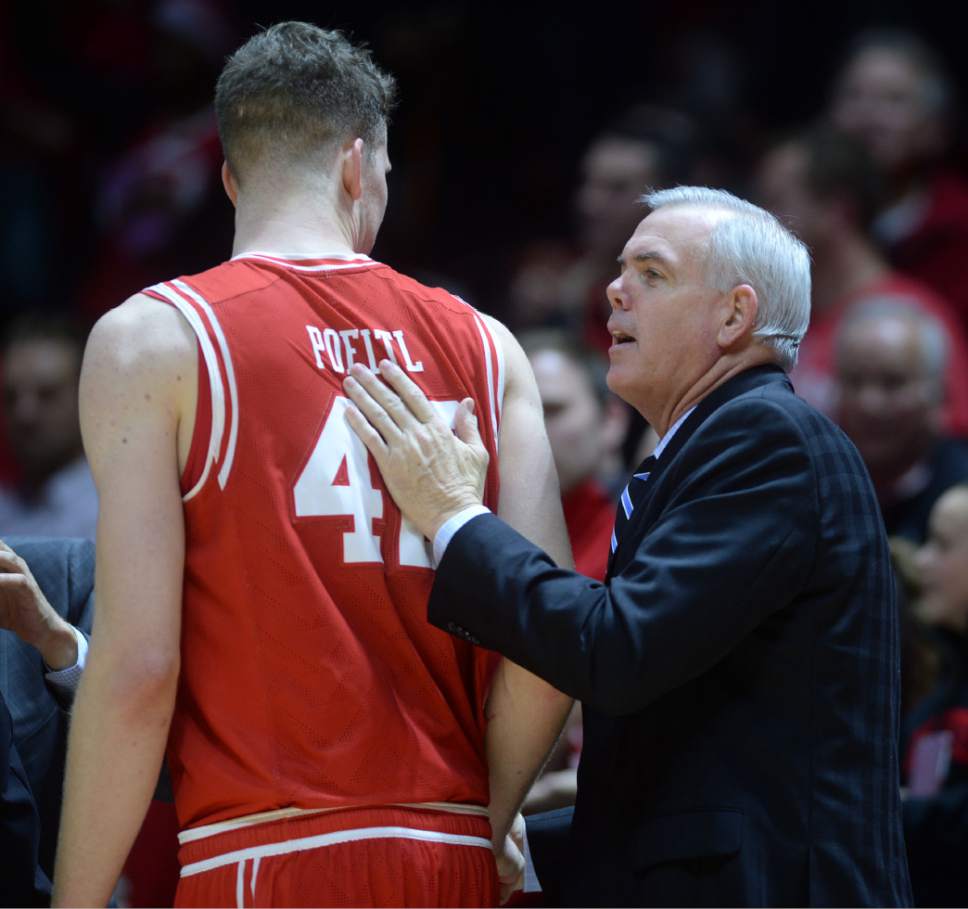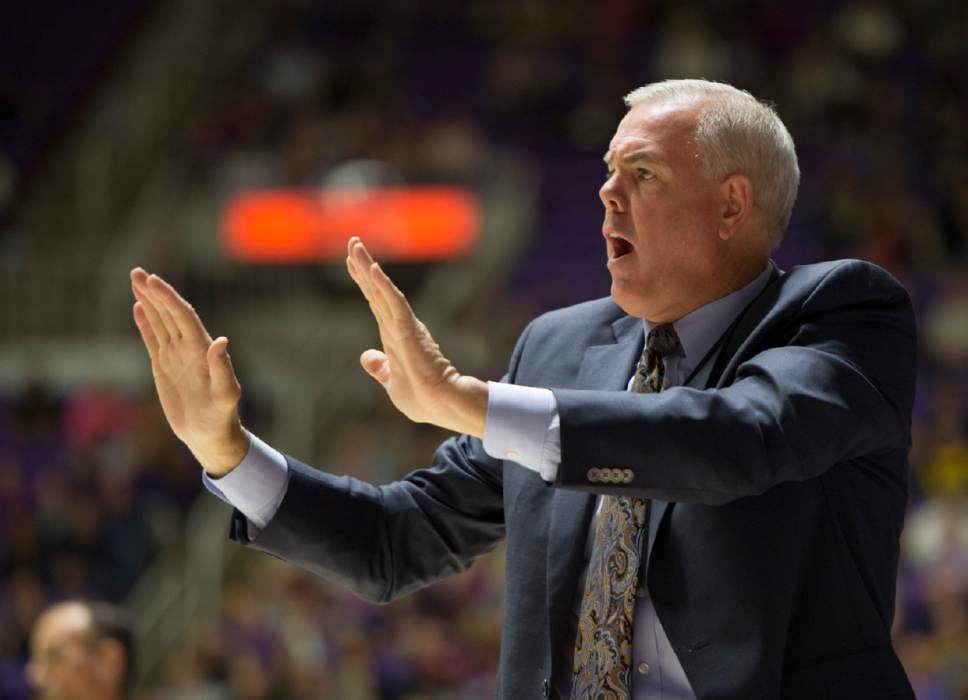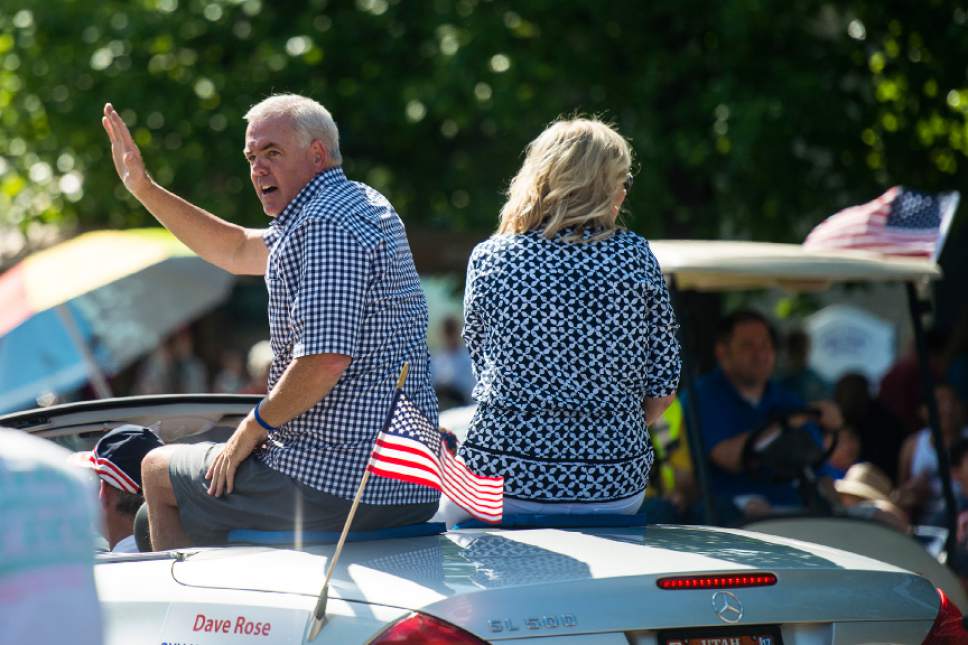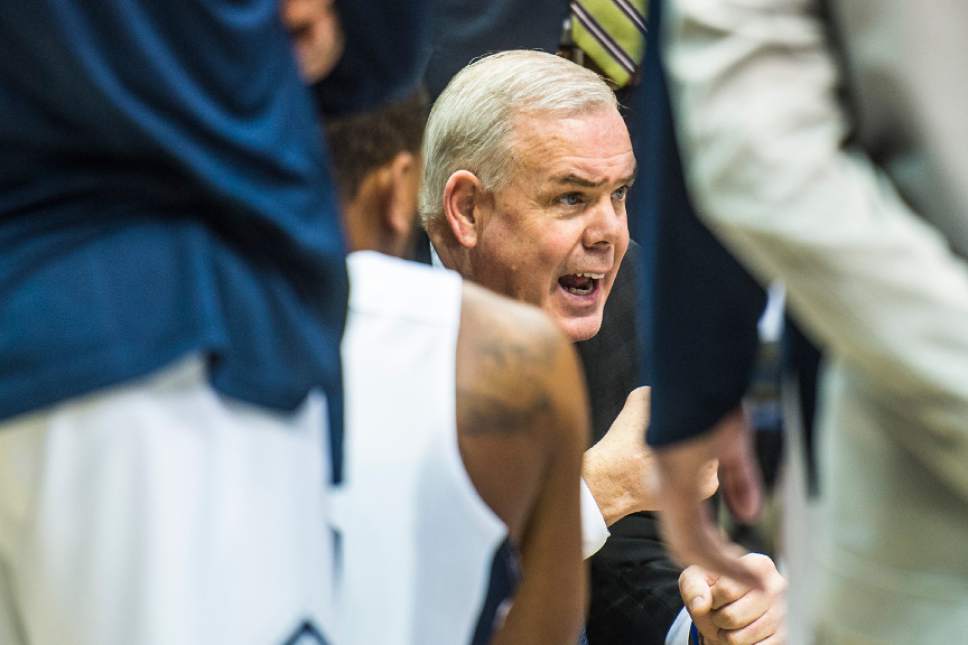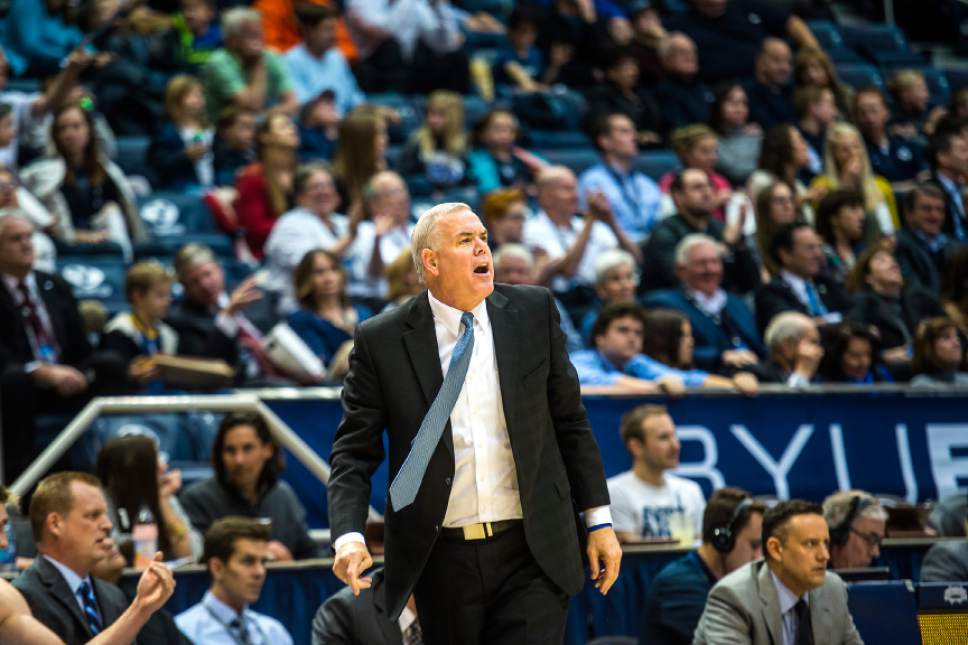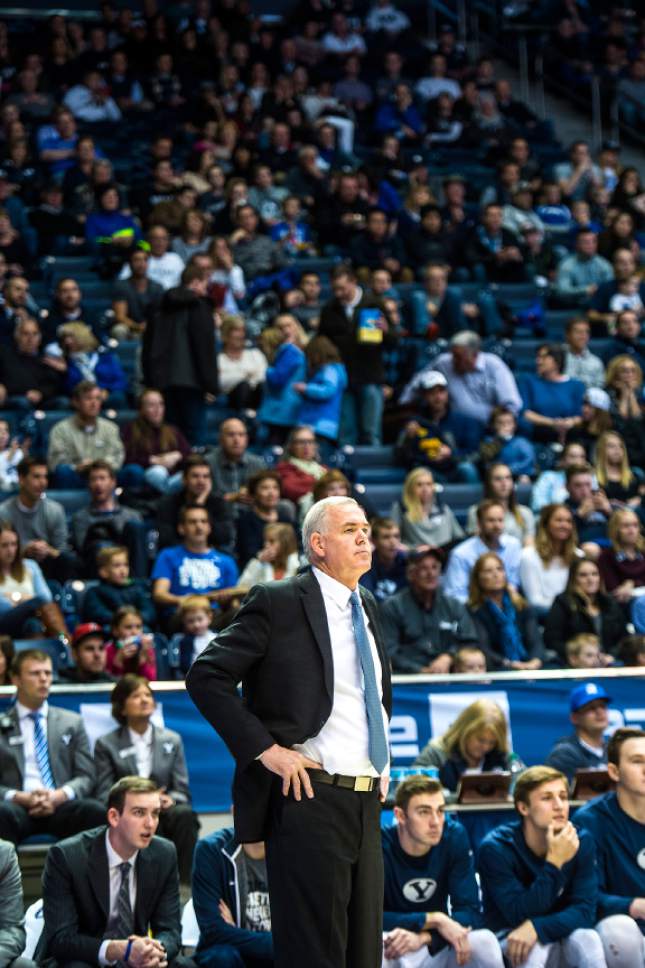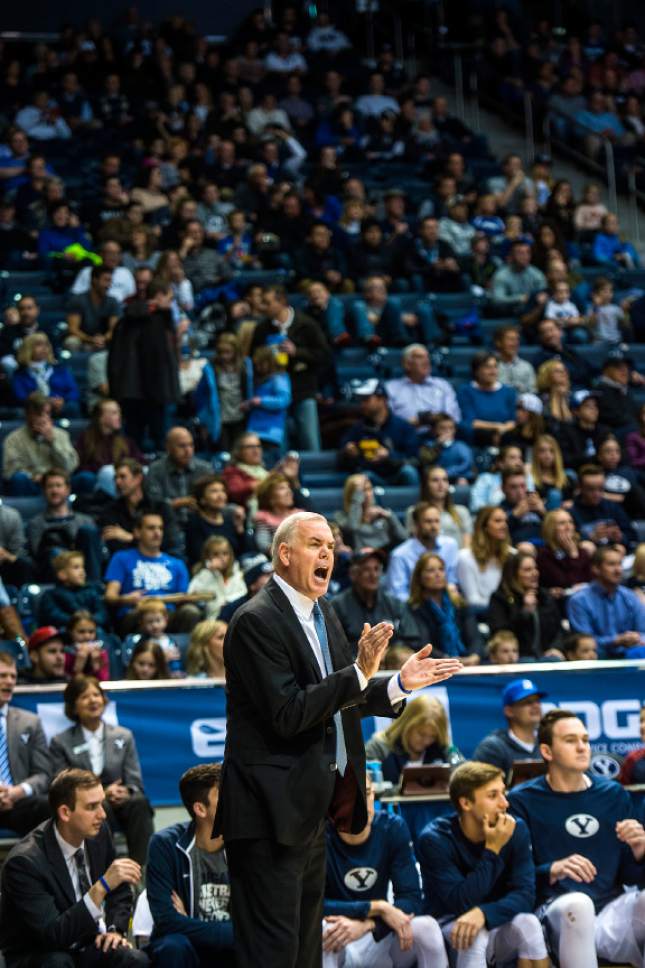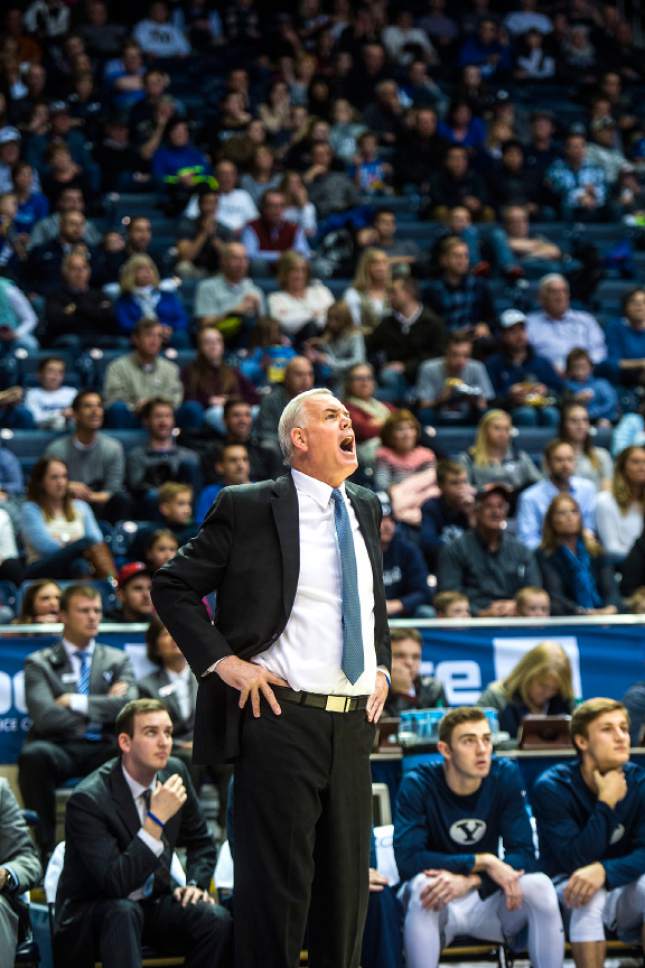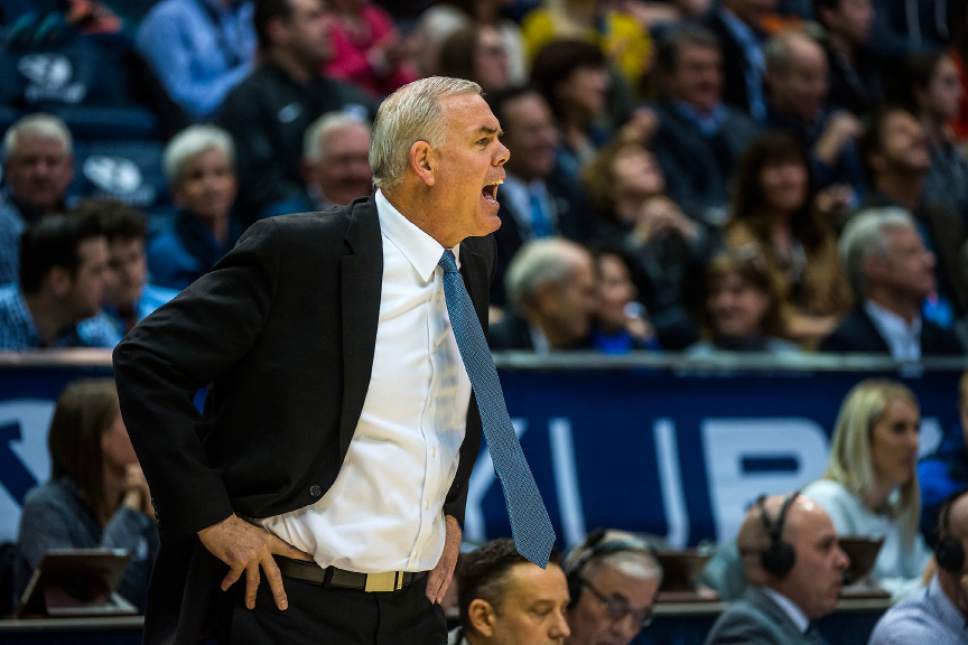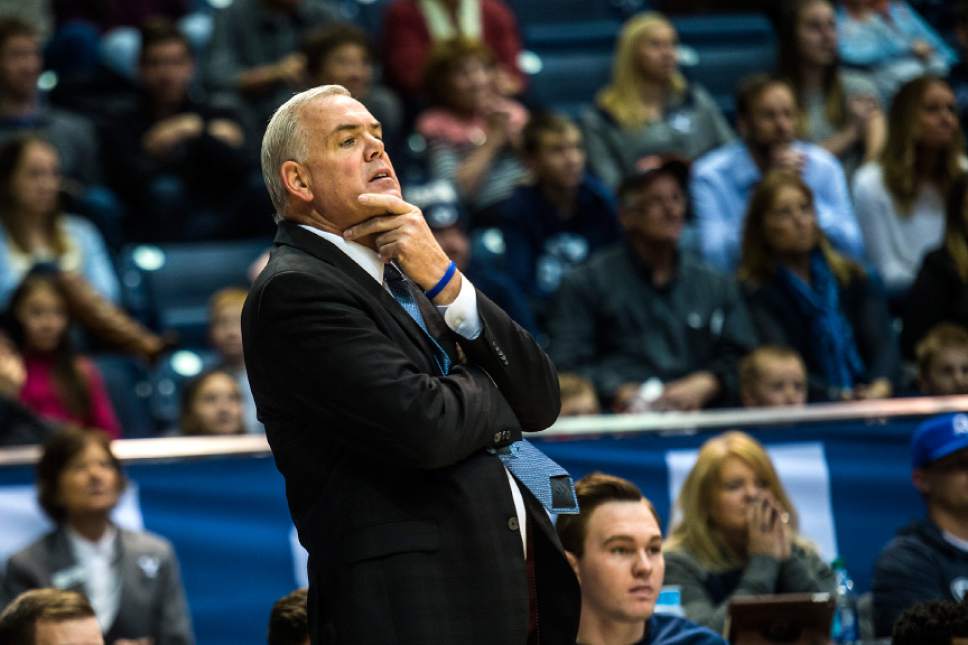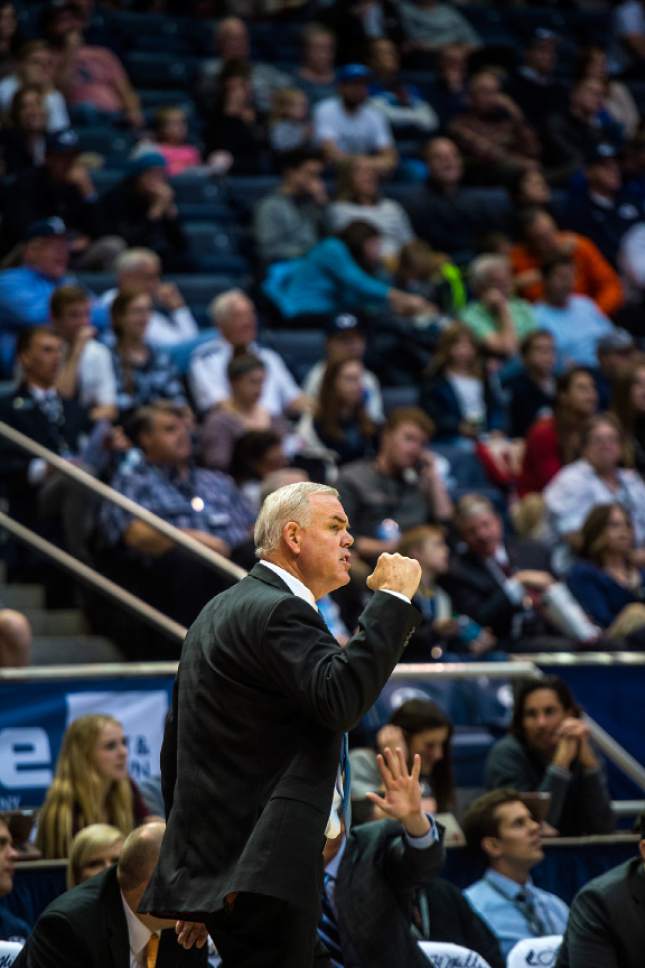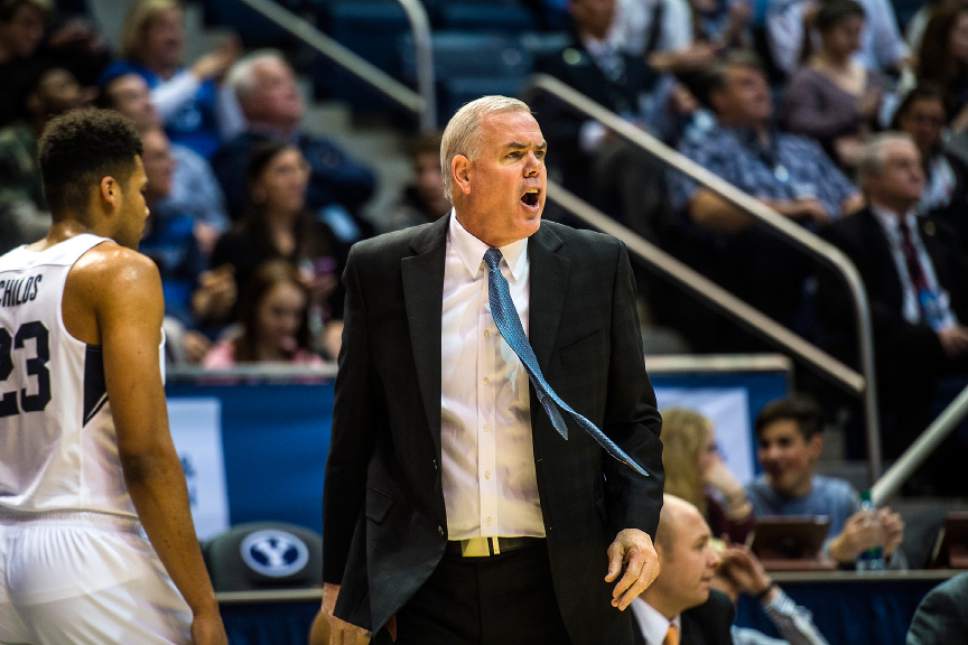This is an archived article that was published on sltrib.com in 2017, and information in the article may be outdated. It is provided only for personal research purposes and may not be reprinted.
Provo • Dave Rose trudged through the snow to the entrance of Manti's gym. The woman staffing the ticket table asked him to pay the admission cost, even though the game already was in the third quarter. ¶ Rose talked his way into the gym, introducing himself as Millard High School's basketball coach and explaining that after being ejected from the game, he had stepped outside for a moment and locked himself out of the coaches' office.
No wonder he speaks of "a crazy path" to becoming BYU's coach. That cold, lonely walk through the school grounds — "wondering what in the world am I doing in Manti, Utah, out in the snow, with my team playing in there," as he laughingly recounted — is a snapshot of his three years at Millard, a much smaller school than most other members of Class 2A in those days.
At 25, Rose started his first teaching and coaching job only a few months after playing for one of the most famous teams in college basketball history, the 1982-83 "Phi Slama Jama" club of Houston that lost to North Carolina State in the NCAA championship game. Rose arrived in Fillmore with something of a celebrity's aura, although the weekly newspaper more than once called him "Dave Ross."
"He was fun to play for," said Gary Monsen, one of 72 seniors in the MHS class of '84. "I knew he'd be successful, but it's hard to imagine getting to his [current] level."
Rose pictures the local basketball coach while driving through towns in rural Utah. He calculates the odds of that guy becoming BYU's coach within 20 years and marvels how it all worked out for himself — beginning in a town of 2,000 residents.
With a growing family, Rose supplemented his $12,180 teaching salary by earning $1,500 as basketball coach, $750 as an assistant football coach and $550 as baseball coach. He worked for the U.S. Forest Service in the summer, cleaning campgrounds and fighting fires, duty that once kept him in Idaho for three weeks.
Having married an aspiring oil executive, Cheryl Rose remembers thinking, "This is not what I signed up for." But "I've always said, I wanted him to be happy doing what he did."
In Fillmore, Rose discovered he loved coaching, although he worried about moving up in the profession. Rose launched his career 100 miles from BYU's campus at Millard, in a job once held by Stan Watts, whom he someday may top as BYU's winningest basketball coach. The usual coaching trajectory is different now. He guesses only a fraction of the current 351 Division I head coaches have worked in a high school.
"I wouldn't trade it for anything," Rose said. "But I don't know if I'd want to go back and do it. … The experience was awesome, if you knew that there was going to be something else for you."
In his 12th season as BYU's coach, approaching a 300th victory that could come Saturday, Rose acknowledges some fans' displeasure with his work via social media. In Fillmore in the mid-'80s, folks went straight to the source. "Because it was so intense in a small town, I really think it prepared me for all that," he said.
Shopping at Duane's Food Town, he would hear suggestions "from the cashier, from the butcher, from the guy doing the vegetables, what I needed to do better. … I got all that feedback in my very first year of doing this, 33 years ago."
Rivalries? "Every bit of the emotions we've experienced here, we experienced there," Rose said. "We felt the pressure of beating Delta, which is more pressure than anyone should have to go through."
And if competing with Gonzaga's Mark Few or Utah's Larry Krystkowiak is challenging, try beating Richfield's Bob Cuff.
Friends who launched their education careers with him and have remained in Fillmore schools for more than three decades recognized Rose's ambitions. They teased him about being a "city slicker" and understood when Rose would confide, "I gotta get outta here."
Yet in those three years, his colleagues appreciated Rose for treating them well, having fun and never big-timing them as a former teammate of Clyde Drexler and Hakeem Olajuwon. Rose hunted deer and pheasants, rode horses and fished in Chalk Creek.
"He was just a regular dude," said Stuart Bailey, a middle school math teacher. "He tried to fit in. He would do the stuff that we did. That's why I think people liked him."
Always cooperative but usually programmed during interviews, Rose relished the subject of his first job, animatedly telling stories for 40 minutes on recent morning in the new Marriott Center Annex. The spacious office with a window overlooking the practice court is a contrast to Millard's old gym, where Rose arrived in the cramped coaches' quarters and asked, "Where's the basketball office?"
"This is it," someone explained.
That's the work space Rose chose over the 42nd floor of 1 Shell Plaza in downtown Houston. As a business major in a summer internship for Shell Oil, he looked forward to two segments of the work day — 11:45 a.m. (lunch) and 5 p.m. (quitting time). So after shocking his wife with the news of his career alteration, he added teaching credentials to his business degree, aided by a redshirt season due to a knee injury that extended his UH tenure.
During the 1983 Final Four, the principals of Millard and Cottonwood read a Deseret News story about Rose's coaching ambitions and his Utah ties as a graduate of Dixie College (where he played basketball and baseball and met Cheryl, who's from the southwestern Utah town of Santa Clara). Rose took their calls and arranged an interview at each school, flying to Las Vegas, borrowing a Volkswagen from the shop of his wife's brother-in-law and heading up I-15, stopping in Fillmore and continuing to Salt Lake City.
With offers to become Millard's head coach or a Cottonwood assistant, he chose Fillmore. That's the hometown of his mother, Gae, and a place he had visited in the summers while growing up in southern California, before the family moved to Houston. Jay Bowerman, a UH assistant coach, advised Rose that he should take the head coaching job and discover right away whether or not he liked that role.
Coaching basketball was a tough job in a community oriented to football and farming in those days. Rose successfully arranged a trip to the University of Utah's camp for high school teams, but only after overcoming resistance from parents who needed their sons to help harvest the first crop of hay in June.
"Great kids," said Dennis Alldredge, who coached one of Millard's 13 state championship football teams, "but we just didn't have a basketball pedigree around here."
Nathan Groesbeck, Rose's assistant, admired Rose's use of a 1-3-1 zone press and other innovations. "He had these ideas of what he could do … with the tools they had," Groesbeck said.
The first year went fairly well after a slow start. Millard beat rival Delta 72-70 late in the season and upset eventual state champion South Sevier in the region tournament, qualifying for the state tournament in his first season. Rose walked into the Marriott Center for the first time in March 1984, when Millard lost 54-53 to Morgan in the 2A quarterfinals.
Rose's second year was less successful, judging by the headline in the school yearbook: "The Longest Season." The summary said the players and coaches "learned to take defeat graciously, they had no choice."
That description wouldn't apply to a game at Manti, where Rose was ejected. He recognized the irony of behaving poorly in front of longtime Manti coach Wilbur Braithwaite. "I happened to get kicked out of the game against the calmest, sweetest, nicest, best-acting guy in the world," Rose said.
"He was definitely more fiery back then," Cheryl Rose said. "People would have no idea."
In any case, Rose's teaching received a favorable yearbook review: "Each student left Coach Rose's class with a keener appreciation of the intricacies of bookkeeping."
The Eagles started 8-3 in Rose's third season, but a team with only one senior faded and missed the state tournament.
Wanting to live somewhere bigger, Rose accepted a teaching position at Pine View High School near St. George and helped coach basketball. The move positioned him to join the Dixie College staff. He later would become the junior college program's coach before moving to BYU as an assistant to Steve Cleveland in 1997.
Although once eager to move, the Roses remain fond of Fillmore, where their second of three children was born in the old hospital that's now the library. "Just good-hearted people," Cheryl Rose said. "What an amazing way to start his career."
Twitter: @tribkurt Dave Rose's coaching career path
1983-86 • Millard High School, coach
1986-87 • Pine View High School, assistant coach
1987-90 • Dixie College, assistant coach
1990-97 • Dixie College, coach
1997-2005 • BYU, assistant coach
2005-present • BYU, coach
Cradle of coaches
Maybe that title should include "rocking chair." Ron Abegglen, who coached at Alaska-Anchorage and Weber State, came out of retirement to coach the Eagles. Stan Watts and Dave Rose, Nos. 1 and 2 in all-time basketball coaching victories at BYU, began their careers at Millard High School. Their records in four-year college programs:
Coach School Years W-L Pct.
Stan Watts BYU 1949-72 372-254 .594
Dave Rose BYU 2005-present 298-105 .739
Ron Abegglen UAA/WSU 1986-99 261-128 .670


